
|
|
|
|
 |
 |
|
|
|
|
|
|
|
|
|
|
|
|
|
|
|
Wed 27 |
|
Thu 28 |
|
Fri 29 |
|
|
|
|
|
|
|
|
|
|
|
|
|
|
|
|
|
|
|
|
|
|
|
|
|
|
|
Chair: Jamie Warner (University of Oxford, UK) |
|
|
|
|
|
|
|
|
|
|
|
|
|
|
|
09:00-09:30 |
|
INVITED |
|
Macro, micro and nano-Raman spectroscopy in 2D systems: fundamentals and applications
|
|
Ado Jorio,
Universidade Federal de Minas Gerais, Brazil |
|
 |
|
|
|
|
|
|
|
|
|
|
|
|
|
|
|
|
09:30-10:00 |
|
INVITED |
|
Understanding electron-beam-stimulated dynamics in low-dimensional heterostructures
|
|
Ute Kaiser,
Ulm University, Germany |
|
 |
|
|
|
|
|
|
|
|
|
|
|
|
|
|
|
|
10:00-10:15 |
|
|
Optical properties of hBN layers |
|
Annick Loiseau,
CNRS-ONERA, France |
|
 |
|
|
|
|
|
|
|
|
|
|
|
|
|
|
|
|
10:15-10:30 |
|
|
Valley-Selective Photon-Dressed States in Monolayer Transition Metal Dichalcogenides |
|
Nathaniel Stern,
Northwestern University, USA |
|
 |
|
|
|
|
|
|
|
|
|
|
|
|
|
|
|
|
|
|
|
|
|
|
|
|
|
|
|
|
|
|
Chair: Ute Kaiser (Ulm University, Germany) |
|
|
|
|
|
|
|
|
|
|
|
|
|
|
|
11:30-12:00 |
|
INVITED |
|
Atomic Resolution Analysis of Single Atoms in 2D Materials using Transmission Electron Microscopy
|
|
Jamie Warner,
University of Oxford, UK |
|
 |
|
|
|
|
|
|
|
|
|
|
|
|
|
|
|
|
12:00-12:15 |
|
|
Direct Graphene Growth and Characterization : in the aspects of Interconnect Application |
|
Changhyun Kim,
Samsung Advanced Institute of Technology, South Korea |
|
 |
|
|
|
|
|
|
|
|
|
|
|
|
|
|
|
|
12:15-12:30 |
|
|
Direct synthesis and characterization of graphene layers on silicon dioxide substrates |
|
André Barbosa,
Pontifícia Universidade Católica do Rio de Janeiro, Brazil |
|
 |
|
|
|
|
|
|
|
|
|
|
|
|
|
|
|
|
12:30-12:45 |
|
|
The substrate effects on the properties of single-layer MoS2: enhanced Valley Helicity and enhanced HER catalytic activity |
|
Lun Dai,
Peking University, China |
|
 |
|
|
|
|
|
|
|
|
|
|
|
|
|
|
|
|
12:45-13:00 |
|
|
Electron Irradiation-Induced Defects and Phase Transformations in Two-Dimensional Transition Metal Dichalcogenides |
|
Arkady Krasheninnikov,
Helmholtz-Zentrum Dresden-Rossendorf, Germany |
|
 |
|
|
|
|
|
|
|
|
|
|
|
|
|
|
|
|
|
|
|
|
|
|
|
|
|
|
|
|
|
|
Chair: Xinliang Feng (Technische Universitaet Dresden, Germany) |
|
|
|
|
|
|
|
|
|
|
|
|
|
|
|
14:30-15:00 |
|
INVITED |
|
A twist, a stretch, and a dislocation: deformations in graphene a few layer graphenes
|
|
Sangeeta Sharma,
Max-Planck-Institut fur Mikrostrukturphysik, Germany |
|
 |
|
|
|
|
|
|
|
|
|
|
|
|
|
|
|
|
15:00-15:15 |
|
|
Local Conduction in Transition Metal Dichalcogenides: The Role of Stacking Faults, Defects and Alloying |
|
Pantelis Bampoulis,
University of Twente, The Netherlands |
|
 |
|
|
|
|
|
|
|
|
|
|
|
|
|
|
|
|
15:15-15:30 |
|
|
k-space indirect interlayer excitons in MoS2/WSe2 van der Waals heterostructures |
|
Jens Kunstmann,
TU Dresden, Germany |
|
 |
|
|
|
|
|
|
|
|
|
|
|
|
|
|
|
|
15:30-15:45 |
|
|
Magnetism of exfoliated 2D chromium chloride CrCl3 |
|
Michele Serri,
Istituto Italiano di Tecnologia, Italy |
|
 |
|
|
|
|
|
|
|
|
|
|
|
|
|
|
|
|
15:45-16:00 |
|
Closing remarks & Graphene2019 announcement |
|
|
|
|
|
|
|
|
|
|
|
|
|
|
|
. |
|
|
|
|
|
|
|
|
|
|
|
|
|
|
|
|
|
| |
| |
 |
 |
 |
 |
 |
 Workshop 1: Growth of High Quality 2D Materials for Optoelectronics and Photonics Workshop 1: Growth of High Quality 2D Materials for Optoelectronics and Photonics
The workshop will focus on the physics and applications of nano-photonics and photodetectors based on graphene, related 2d materials, and heterostructures of those. A wide range of physical phenemona are being explored such as plasmonics, carrier dynamics, carrier cooling, energy transfer, non-local response, valley physics etc. These phenomena are often key for the understanding and development of novel device concepts for applications such as photodetectors and modulators.
|
| |
| |  |
 |
 |
Camilla Coletti |
NEST / IIT |
Italy |
Invited |
|
|
 |
 |
 |
Stephan Hofmann |
University of Cambridge |
UK |
Invited |
|
|
 |
 |
 |
Jun Jiao |
Portland State University |
USA |
Invited |
|
|
 |
 |
 |
Mindaugas Lukosius |
Institute for High Performance Microelectronics |
Germany |
Invited |
|
|
 |
 |
 |
Sten Vollebregt |
Delft University of Technology |
The Netherlands |
Invited |
|
|
 |
|
 |
| |
|
| |
 Workshop 2: Chemistry 2DM Workshop 2: Chemistry 2DM
This workshop will focus on the progress of the chemical approaches towards graphene and related 2D materials. Top-down chemical exfoliation and bottom-up growth and synthesis of GRMs, as well as the chemical functionalization of GRMs with covalent and non-covalent approaches leading to tunable properties will be presented. Other topics including hierarchical hybrid structures, polymer composites, solution processing, electrocatalysis & photocatalysis, functional foams, membranes and coatings of GRMs will be also presented.
|
| |
| |  |
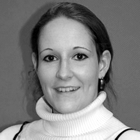 |
 |
Claudia Backes |
University of Heidelberg |
Germany |
Invited |
|
|
 |
 |
 |
Siegfried Eigler |
Freie Universität Berlin (FU-Berlin) |
Germany |
Invited |
|
|
 |
 |
 |
Catherine Journet-Gautier |
Université Claude Bernard Lyon 1 / CNRS |
France |
Invited |
|
|
 |
 |
 |
Paolo Samorì |
Université de Strasbourg |
France |
Keynote |
|
|
 |
|
 |
|
 |
| |
|
| |
 Workshop 3: Theory & Simulation Workshop 3: Theory & Simulation
This workshop aims at presenting recent theoretical advances and simulation studies of graphene, two-dimensional materials (2DM), as well corresponding vdW heterostructures. Emphasis will be given to new concepts such as valleytronics, spin gating and realistic simulations of 2DM devices, including transistors, chemical sensors. From novel theoretical concepts to ultimate developments in first-principles calculations, an overall picture of recent achievements/breakthroughs and research prospective will be targeted, including electronic and thermal transport, optoelectronics (excitonic and plasmonic effects) and mechanical properties. |
| |
| |  |
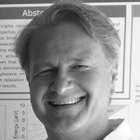 |
 |
Jaroslav Fabian |
Universität Regensburg |
Germany |
Invited |
|
|
 |
 |
 |
Yuan Ping Feng |
NUS |
Singapore |
Invited |
|
|
 |
 |
 |
Luis E. F. Foa Torres |
University of Chile |
Chile |
Invited |
|
|
 |
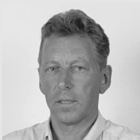 |
 |
Francois Peeters |
University of Antwerp |
Belgium |
Invited |
|
|
 |
|
 |
|
 |
| |
|
| |
 Workshop 4: Energy Workshop 4: Energy
Devices for storing and converting energy, including batteries, supercapacitors, solar and fuel cells, as well as for water splitting and thermoelectricity often benefit from having materials with a large surface area. When combined with a high surface reactivity, high conductivity, or useful optical properties, graphene and related materials (GRMs) become of notable interest for a range of energy applications. This workshop aims to highlight the latest advances and development in the use of GRMs for energy conversion and storage, outlining the stumbling blocks for industrial applications and benchmarking to other technologies. |
| |
| |  |
 |
 |
Jong-Beom Baek |
UNIST |
Korea |
Invited |
|
|
 |
 |
 |
Yury Georgievich Gogotsi |
Drexel University |
USA |
Invited |
|
|
 |
 |
 |
Giulia Grancini |
EPFL |
Switzerland |
Invited |
|
|
 |
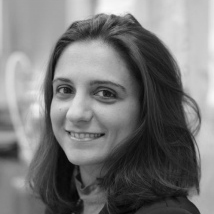 |
 |
Cecilia Mattevi |
Imperial College London |
UK |
Invited |
|
|
 |
|
 |
|
 |
| |
|
| |
 Workshop 5: Biosensors and Medical Applications Workshop 5: Biosensors and Medical Applications
The workshop will be focused on the latest advances in developing graphene-based biosensors (optical, electrical etc), toxicity issues of GRMs as well as their latest developments in nanomedicine and medical applications such as tissue engineering, electrodes for brain, drug delivery, and so forth. Integration of graphene into innovative (bio)sensing systems will lead to high sensitive, high selective and cost-effective analysis and monitoring in fields like medicine, environment, security and other industries. The workshop aims to discuss bio applications facing the requirements set within the context of industrial research.
|
| |
| |  |
 |
 |
Lucia Gemma Delogu |
Institute for Pediatric Research |
Italy |
Invited |
|
|
 |
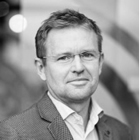 |
 |
Radek Zboril |
Palacky University in Olomouc |
Czech Republic |
Invited |
|
|
 |
|
 |
|
 |
|
 |
|
 |
| |
|
| |
 Workshop 6: Wearable and flexible devices Workshop 6: Wearable and flexible devices
|
| |
| |  |
 |
 |
Henrik Sandberg |
VTT |
Finland |
Invited |
|
|
 |
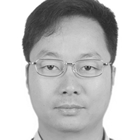 |
 |
Haofei Shi |
Chongqing Institute of Green and Intelligent Technology, CAS |
China |
Keynote |
|
|
 |
 |
 |
Andrey Turchanin |
Friedrich Schiller University Jena |
Germany |
Invited |
|
|
 |
|
 |
|
 |
|
 |
| |
|
| |
A series of targeted talks given by Invited speakers will be followed by oral contributions selected from the Graphene 2018 submissions on all workshops mentioned above. |
| |
| |
|
|
|
|
|
|
|
|
 |
|

